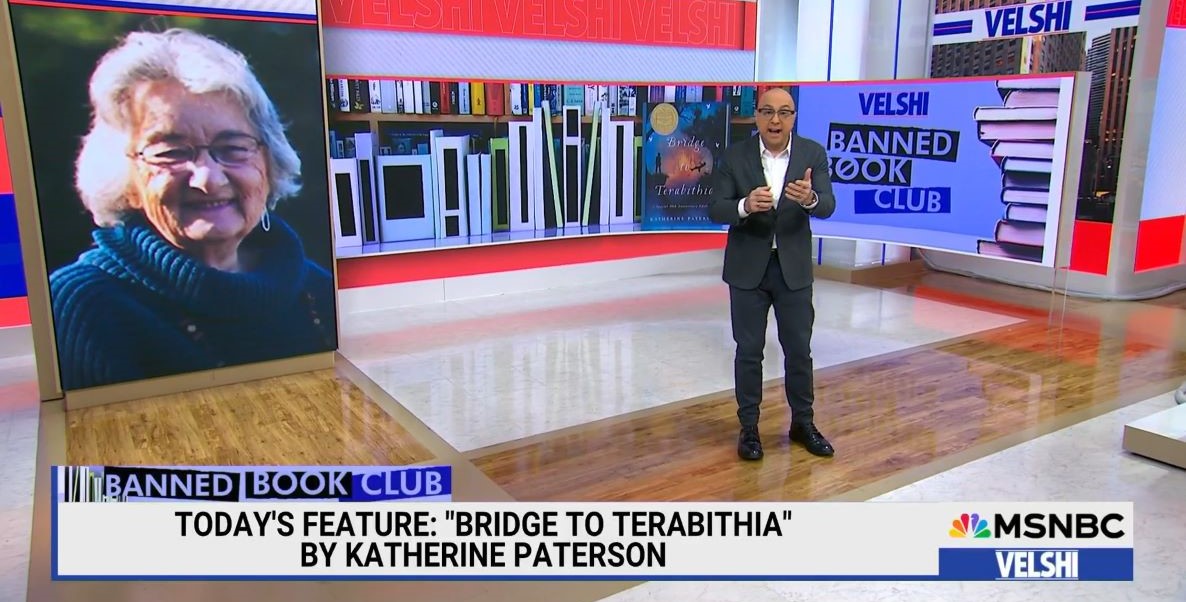If you grew up in the 80s and afterward, you likely remember Bridge to Terabithia, the Newberry Award Winning 1977 novel by Katherine Paterson. It is a touching story of best friends who build an imaginary world in the woods. As Ali Velshi explains, for those who haven’t read it, the book is much deeper than children at play: It carries themes of friendship, identity, class, family dynamics and death.
Lauded as one of the most poignant children’s books of the 20th century, Terabithia has nonetheless remained one of the most banned books in the U.S. since its publication. While Paterson comes from a religious background herself, many groups have decried the book as “anti-Christianity” and “promoting atheism.” Others object to “profanity.”
The very idea that loss, death, longing, searching for belonging and the desperate search for answers that life sometimes can’t give us aren’t themes children can handle seems ludicrous, as anyone who has ever been a child has endured all of these experiences unless you’ve been very lucky to avoid losing a loved one or close friend. These are universal human themes.
“Books are a wonderful rehearsal for what you’re going to meet in life,” says Paterson. “And … we’re all going to have to meet death.”
Listen to Velshi’s interview with Katherine Paterson:
Watch Velshi and Paterson discuss the universal themes of Bridge to Terabithia:
Velshi on banned books on MSNBC:
![]() MORE ON BANNED BOOKS FROM THE CITIZEN
MORE ON BANNED BOOKS FROM THE CITIZEN
Ali Velshi preparing to interview Katherine Paterson, author of Bridge to Terabithia




